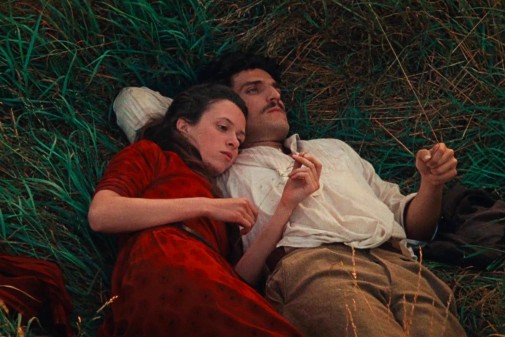TIFF 50: To be or not to be, with "Hamlet" and "Scarlet"
 Saturday, October 11, 2025 at 12:00PM
Saturday, October 11, 2025 at 12:00PM 
You thought you were free of TIFF coverage? Well, think again, because there are still a lot of movies to discuss, even if already intertwined with NYFF reviews. In any case, let's consider Shakespeate and a certain prince of Denmark.
There lived and died a Hamnet before Hamlet came to be on the page, on the stage, and in the imagination of countless folks stretching from the Elizabethan age into eternity. At TIFF 50, however, Aneil Karia's Hamlet screened before Zhao's Hamnet, a bit overshadowed by the film that had already rocked Telluride by that point and still promises to be a talking point for months to come. The same could be said for Scarlet, Mamoru Hosoda's latest animated fantasy, which takes its cues from the Bard's tragedy for one wild ride into purgatory and beyond…
 Aneil Karia,
Aneil Karia,  Film Reviews,
Film Reviews,  Hamlet,
Hamlet,  Mamoru Hosoda,
Mamoru Hosoda,  Review,
Review,  Riz Ahmed,
Riz Ahmed,  Scarlet,
Scarlet,  Shakespeare,
Shakespeare,  TIFF,
TIFF,  animation,
animation,  anime,
anime,  film festivals
film festivals 




